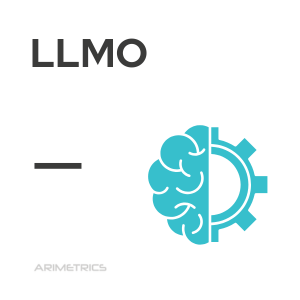Definition:
LLMO, which stands for Large Language Model Optimization, is the process of optimizing digital content to be understood, processed, and prioritized by large artificial intelligence language models, such as ChatGPT, Gemini, or Claude. Just as traditional SEO aims to improve positioning in search engines like Google, LLMO aims to have generative AI models select and reference the content in their responses when users inquire about a specific topic. In the current context, where conversational searches and AI responses are gaining prominence, LLMO becomes a key strategy to increase the visibility and relevance of brands, products, and services in new digital environments.
Main Characteristics of LLMO
- Optimization for generative AI: The focus is on adapting content so that language models interpret and prioritize it in their responses, not just for traditional search engines.
- Emphasis on context and clarity: Content must be clear, well-structured, and rich in context to facilitate its understanding and use by LLMs.
- Use of structured data: The incorporation of structured data and concise answers facilitates automatic processing by AI models.
- Authority and reliability: LLMs value authority and quality, so it is essential to provide truthful and referenced information.
- Adaptability to different formats: LLMO considers the optimization of texts, images, tables, and other formats that can be interpreted by AI.
- Complement to SEO: It does not replace SEO, but complements it, allowing content to be visible both in search engines and in AI-generated responses.
Advantages of Implementing LLMO in AI Projects
- Greater visibility in AI responses: Optimized content is more likely to be cited or referenced by models like ChatGPT or Gemini when responding to users.
- Relevance in conversational searches: As users increasingly turn to AI assistants, LLMO ensures that the brand remains visible in these emerging channels.
- Better understanding of content: By structuring and clarifying information, its processing is facilitated for both AI and humans.
- Competitive differentiation: Adopting LLMO early allows getting ahead of the competition in environments where AI is the main channel for information discovery.
- Leveraging new traffic sources: AI-generated responses can become a relevant channel for capturing leads and potential customers.
Common Techniques and Strategies in LLMO
- Prompt engineering: It involves carefully designing questions, titles, and texts to guide the interpretation and generation of responses by AI models.
- Structured data and semantic markup: The use of schemas, tables, and structured formats helps AI better understand the content and use it in its responses.
- Fine-tuning and supervised training: Adjusting language models with specific brand or sector data to improve the relevance of responses.
- Retrieval-Augmented Generation (RAG): Integrating systems that allow AI to retrieve relevant information from databases or documents before generating the response.
- Optimization of authority and reliability: Including references, links to verified sources, and verified data to increase the likelihood of being selected by AI.
- Strategic text sequencing: Organizing information in a way that highlights key messages and facilitates their extraction and use by AI models.
- Continuous adaptation: Monitoring trends in the behavior of language models and adjusting the content strategy to maintain relevance.
Applications and Use Cases of LLMO
- Content marketing: Allows articles, guides, and product sheets to be referenced by AI assistants in user queries, increasing brand authority and reach.
- Customer service: Facilitates chatbots and virtual assistants in extracting accurate and relevant information from optimized documentation, improving user experience.
- E-commerce: Optimize product descriptions and FAQs to be cited in AI-generated responses, influencing purchasing decisions.
- Education and training: Ensure that teaching materials and educational resources are used by AI models in responses to students and teachers.
- Online reputation: Allows managing brand perception by influencing automated responses that users receive about products, services, or companies.
- Conversational SEO: Expands traditional SEO strategy to the new paradigm of AI-generated searches and responses, capturing traffic from new channels.
LLMO represents a natural evolution of digital marketing, adapting to the era of artificial intelligence and positioning brands at the center of conversations generated by advanced language models.
